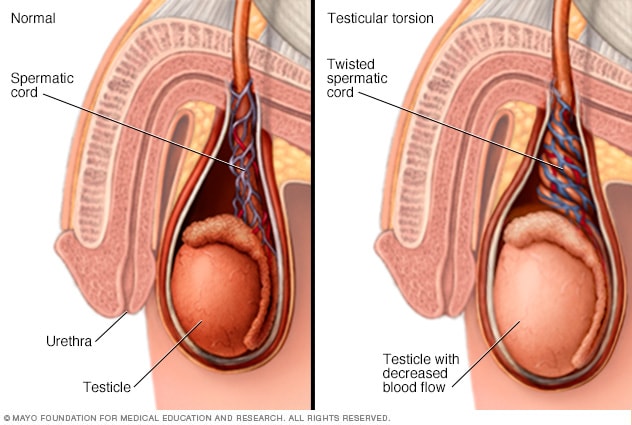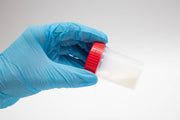Infertility is closely related to abnormal semen in men. The decline of sperm quality, oligospermia and weak sperm are the main causes of male infertility. The World Health Organization Multi-Research Center once conducted statistical analysis on the data of 7273 infertile couples and found that abnormal semen quality is mainly related to the following 13 factors:
- Sexually transmitted diseases. The incidence of azoospermia was similar between those with sexually transmitted diseases and those without the disease, but the incidence of abnormal semen was significantly higher in the former. Clinically, the most common sexually transmitted diseases include gonorrhea, nongonococcal urethritis, genital warts, genital herpes, syphilis, and AIDS. For example, non-gonococcal urethritis is mainly caused by mycoplasma and chlamydia, which can exist in large quantities in male semen, increase the rate of sperm deformity, and reduce the penetrating power, thus leading to infertility; Treponema pallidum can also be detected in the patient's semen, which will adversely affect the survival rate, shape and quality of sperm, and then lead to infertility. Fetus; the virus in AIDS patients is widely present in all body fluids, including semen, of course, patients are prone to immunodeficiency, and are more likely to suffer from various diseases that affect the quality of semen.
- Mumps. This is an acute respiratory transmission disease caused by parotid virus infection, which is common in children and adolescents. The parotid virus can invade the seminiferous tubules in the boy's testes and cause irreparable damage to it, resulting in a decrease in the ability to produce sperm, resulting in oligospermia or even azoospermia. In addition, it can infect the testicles, causing orchitis, affecting the patient's sexual function and causing severe pain. Therefore, it is necessary to prevent mumps in boys.

- Bronchitis. Bronchitis is often manifested as systemic ciliary dysfunction. Cystic fibrosis of this tissue can lead to damage or blockage of bilateral vas deferens, which in turn leads to ejaculation disorders, and the chances of patients with oligozoospermia and azoospermia will increase. In addition, respiratory diseases such as bronchitis can also lead to hypoxia in the body, triggering oxidative stress in the body, which can adversely affect sperm production.
- Diabetes has a great impact on the reproductive system. On the one hand, it can cause narrowing of the blood vessels in the penis, which in turn manifests as erectile dysfunction; on the other hand, it can cause a variety of neurological complications. Long, ejaculation disorders and even retrograde ejaculation. The decline in erectile function and ejaculation function of patients will lead to the occurrence of infertility.
- Recent history of high fever. In patients with a history of high fever within 6 months, the abnormal rate of semen analysis was significantly higher. The normal working temperature of the testis is 35°C~36°C. When the fever is high, the human body temperature reaches 39.1°C~40°C. At this time, the temperature of the testis in the scrotum is higher than 38°C, which will seriously affect the physiological function of the testis, reduce the ability of sperm production and Synthesis of androgens, which in turn affects fertility.
- Nervous system diseases. The physiological activity of ejaculation is mainly completed by the pudendal nerve and the internal pelvic nerve. When these nerves are damaged due to various nervous system diseases in men, it may cause ejaculation disorders and retrograde ejaculation, so that the semen cannot be excreted normally, and the sperm cannot be excreted normally. impregnate the spouse.
- Urethral symptoms. Men’s urination and ejaculation must be completed through the urethra. When the urethra is not smooth due to various reasons, such as urethral stones and urethral blockage, it can cause impediment to ejaculation, resulting in too little semen or even inability to ejaculate, leading to infertility disease.
- Poor testicular descent. The testis of normal males develops in the abdominal cavity during the fetal period, and will descend to the scrotum as it develops. This process is often completed before birth, and some newborns do not descend after birth, which is cryptorchidism. The disease should be diagnosed and treated before the age of 2. If the testes stay in the abdominal cavity for a long time, the spermatogenesis ability of the testes will be affected due to the high temperature in the abdominal cavity. The incidence of azoospermia in people with such a history is significantly higher, and the incidence of azoospermia in patients with poorly descended testes on both sides is 2 times higher than that on one side. In addition, the risk of canceration of cryptorchidism will also greatly increase. Therefore, cryptorchidism discovered after 2 years old often requires orchiectomy on the affected side. Therefore, parents should also pay more attention to the newborn's testicles.

- Testicular injury. It is common for all kinds of violence to act on the testis, resulting in hydrocele and hemorrhage, spermatic cord damage, and in severe cases, testicular torsion or even testicular rupture. The incidence of azoospermia or abnormal semen is significantly increased in such patients. Even in mild cases, adverse effects such as decreased spermatogenic function of damaged testes may also occur.
- Testicular torsion. Testicular torsion refers to the emergency that in some cases, the testis and the spermatic cord are twisted and entwined, leading to abdominal pain, testicular swelling and pain, and even testicular ischemia and necrosis. Once testicular torsion occurs, it needs to be treated within 4 hours to restore the testicular blood supply; if treated within 4 to 6 hours, the spermatogenesis of the affected testis will be slightly affected; if it exceeds 6 hours, the testis may be necrotic due to severe ischemia , will have to be removed, which is bound to have a serious impact on the patient's fertility.

- Epididymis-orchitis. The epididymis is the place where sperm are stored and matured. If you suffer from epididymitis, it may affect the maturity of sperm and the quality of mature sperm, causing asthenospermia. The testis is the place for sperm production. Patients with orchitis may affect their testicular spermatogenesis, resulting in too little sperm production, oligozoospermia or even azoospermia.
- Long-term use of certain medicines. Some drugs, such as chemotherapy drugs, may affect sperm synthesis if taken for a long time; some antihypertensive drugs achieve the purpose of lowering blood pressure by dilating blood vessels, and also cause insufficient congestion when the penis is aroused, resulting in erectile dysfunction; there are also some antiandrogen drugs, They can inhibit the level of androgen in the serum, resulting in a decrease in libido, and androgen is also involved in the synthesis of sperm, and the decrease in androgen level can also lead to a decrease in sperm volume and quality, causing infertility.
- Drink alcohol. Many studies have pointed out that in the state of higher doses of alcohol intake, the level of androgen in serum is lower, which affects sperm synthesis. Moreover, spirits also have adverse effects on the acrosome zymogen of sperm. Acrosinogen is the predecessor of acrosin, which not only promotes sperm motility, but also is an indispensable hydrolytic enzyme for the combination of sperm and egg cells. High concentrations of alcohol can lead to premature conversion of acrosinogen to acrosin, resulting in decreased chances of conception. In addition, alcohol also has adverse effects on the development of embryos. From the perspective of prenatal and postnatal care, both husband and wife should abstain from alcohol before preparing for pregnancy.







